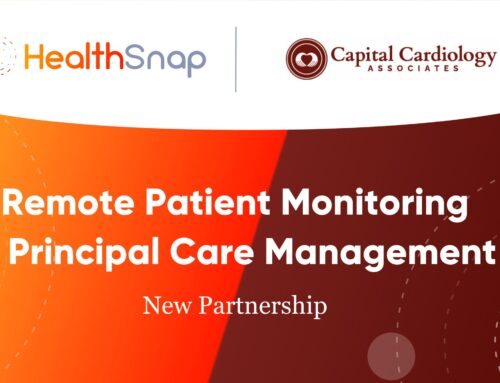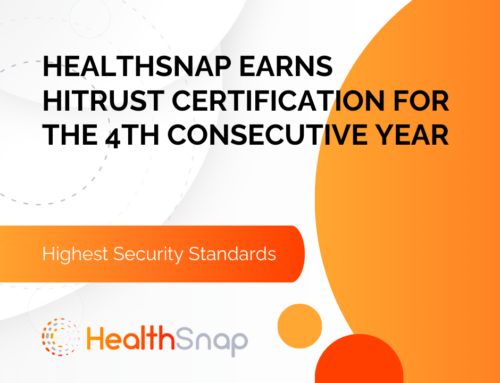The Centers for Medicare & Medicaid Services (CMS) has recently introduced a proposed rule outlining certain changes to the Medicare Physician Fee Schedule (MPFS) for 2025. This rule contains several important updates and changes for healthcare providers, including payment adjustments, telehealth policy changes, and new care management services.
Reduction in Payment Rates
CMS is proposing a 2.93% reduction in the average payment rates under the MPFS for 2025 compared to 2024. This means that the conversion factor, which determines how much Medicare pays for services, would decrease by $0.93, or 2.8%, from the current year.
Telehealth Policy Updates
The Centers for Medicare & Medicaid Services (CMS) is proposing significant updates to Medicare’s telehealth services, aiming to refine and expand the program. Here’s a breakdown:
New Process for Adding Telehealth Services
Starting in 2025, CMS will introduce a 5-step process to decide whether to add, keep, or remove services from the Medicare Telehealth Services List. This replaces the old categorization system. Each telehealth service will now receive either:
-
Permanent Status: For services with strong evidence of clinical benefit.
-
Provisional Status: For services that don’t yet have enough evidence to prove their clinical benefit but show enough promise that further study might confirm their value.
This change is designed to make the process more transparent and ensure that services on the list are both effective and beneficial to patients.
Expansion of Audio-Only Telehealth
During the Covid-19 public health emergency (PHE), CMS temporarily allowed health care providers to offer certain services via audio-only communication, recognizing the barriers some patients face in accessing video technology. Now, CMS is proposing to make this option more permanent.
-
Revised Definition: CMS wants to update the definition of “interactive telecommunications system” to include two-way, real-time audio-only communication for telehealth services when:
-
The patient is at home
-
The healthcare provider can use video, but the patient either cannot or prefers not to use video
-
This proposal acknowledges that not all patients have reliable internet access or feel comfortable using video technology. By allowing audio-only visits, CMS aims to make telehealth more inclusive and accessible to a broader range of patients.
Distant Site Reporting
The Centers for Medicare & Medicaid Services (CMS) suggests that distant site practitioners, those who deliver telehealth services from a location other than where the patient is, may continue to use their practice address for reporting purposes rather than their home address until the end of 2025.
Supervision
Under Medicare Part B, certain services must be provided under the supervision of a physician or practitioner. This supervision can be classified into different types, such as general, direct, or personal supervision. For direct supervision, the supervising physician or practitioner must be present in the office suite and be immediately available to assist throughout the service.
During the Covid-19 PHE, CMS allowed this direct supervision to be conducted virtually, using real-time audio and video technology. This temporary change is now proposed to be extended through December 31, 2025. Although CMS is cautious about the potential challenges that could arise if a supervisor is not physically present, they recognize the value of this flexibility in improving patient access to care.
CMS is also considering making this virtual supervision a permanent option for certain low-risk services, such as those provided by auxiliary personnel under the direct supervision of a billing practitioner. For all other services, the virtual supervision option is proposed to continue only until the end of 2025.
Enhanced Care Management
The Centers for Medicare & Medicaid Services (CMS) proposes introducing new codes (GPCM1 through GPCM3) for advanced primary care management (APCM) services. These services would be billed on a per-patient, per-month basis, with payment levels determined by patient complexity. Patients with varying chronic conditions would be categorized into three levels: Level 1 would include those with one or no chronic conditions, Level 2 would apply to those with two or more chronic conditions, and Level 3 would be designated for “Qualified Medicare Beneficiaries” who have two or more chronic conditions.
CMS emphasizes that not all APCM services need to be provided every month for every patient. However, all necessary services must be available as needed. They also propose that while the specific time spent on APCM services does not need to be documented, the actions and communications related to these services should be recorded in the patient’s medical record.
In addition, CMS proposes a new code (GCDRA) for an Atherosclerotic Cardiovascular Disease (ASCVD) Risk Assessment, which would be performed during an evaluation/management visit and billed no more than once a year.
Reporting and Refunding of Overpayments
In December 2022, CMS proposed revisions to existing Medicare regulations for reporting and returning overpayments under Parts A, B, C, and D. These proposed changes were initially discussed in the December 2022 Overpayment Proposed Rule but were not finalized. Instead, CMS retained those proposals and introduced additional changes in a new Proposed Rule aimed at clarifying and revising the deadline for reporting and refunding overpayments.
Proposed Changes to the Overpayment Reporting Timeline
CMS now seeks to clarify the conditions under which the 60-day deadline for reporting and refunding overpayments can be suspended. The key proposals include:
Suspension for Investigation
The 60-day period would be suspended if:
-
A provider or supplier identifies a potential overpayment but has not yet completed a good-faith investigation to determine the extent of related overpayments.
-
This suspension would last until the earlier of:
-
The completion of the good-faith investigation and the calculation of overpayments, or
-
180 days after the initial identification of the overpayment.
-
Submission to Protocols
The suspension would also apply if:
-
A provider or supplier has made a submission to the Office of Inspector General (OIG) Self-Disclosure Protocol, CMS Voluntary Self-Referral Disclosure Protocol, or requested an extended repayment schedule as defined under regulation.
Resumption of the 60-Day Requirement
After the suspension ends, the requirement to report and return the overpayment would be reinstated, with the deadline being the earlier of:
-
60 days after the conclusion of the good-faith investigation, or
-
180 days from the initial discovery of the overpayment.
Example Scenario
CMS provided an example to illustrate these proposed changes:
-
If a provider identifies an overpayment on day one but suspects additional related claims may also be affected, the provider would have up to 180 days to conduct a good-faith investigation. If during this period, the provider submits a voluntary disclosure to OIG or CMS, the deadline could be further extended.
-
With that said, if the provider decides not to conduct a further investigation, the original 60-day deadline to report and return the overpayment from its initial discovery would apply.
This proposed rule aims to provide more flexibility and clarity for providers and suppliers in handling overpayments, while still maintaining the obligation to report and refund any overpayments in a timely manner.
Other Noteworthy Proposals in the CMS Proposed Rule
Here are some additional noteworthy proposals:
Office/Outpatient E/M Visit Complexity Add-On
CMS proposes to refine the current policy regarding the Office/Outpatient Evaluation and Management (O/O E/M) visit complexity add-on code starting in CY 2025. Under the new proposal, payment would be allowed when the O/O E/M base code is reported by the same practitioner on the same day as:
-
An Annual Wellness Visit (AWV)
-
Vaccine administration
-
Any Medicare Part B preventive service provided in the office or outpatient setting.
This change aims to streamline billing processes and improve the integration of preventive services with regular office visits.
Supervision of Outpatient Therapy Services in Private Practices
CMS proposes to allow general supervision of Occupational Therapy Assistants (OTAs) and Physical Therapy Assistants (PTAs) by occupational therapists and physical therapists in private practice, respectively, when these assistants are furnishing outpatient therapy services. This proposal could increase access to therapy services by offering more flexibility in supervision requirements.
Based on this, CMS proposes to amend the certification of therapy plans of care. A signed and dated order or referral from a physician or non-physician practitioner (NPP), combined with certain other documentation, could now suffice to demonstrate certification of required conditions.
Advancing Access to Behavioral Health Services
In response to the growing need for mental health care, especially among individuals with substance use disorders, CMS proposes several new codes and payment structures:
-
Safety Planning Interventions: Establish separate coding and payment for safety planning interventions to manage risks in individuals with substance use disorders.
-
Post-Discharge Follow-Up: Introduce a monthly billing code for specific protocols involved in post-discharge follow-up care performed after a crisis encounter in the emergency department.
-
Digital Mental Health Services: Provide Medicare payment to billing practitioners for certain digital mental health treatments furnished as part of or integral to professional behavioral health services.
Additional Policy Proposals
CMS also introduced significant proposals for:
-
Medicare Shared Savings Program: Changes are proposed to enhance the program, which encourages Accountable Care Organizations (ACOs) to reduce healthcare costs while meeting performance standards on quality of care.
-
Merit-based Incentive Payment System (MIPS): CMS continues to evolve MIPS, proposing changes that would impact how clinicians are scored and reimbursed under this value-based payment system.
-
Medicare Prescription Drug Inflation Rebate Program: New policies are proposed to address drug price inflation, aiming to reduce out-of-pocket costs for Medicare beneficiaries.
These proposals reflect CMS’s ongoing efforts to improve the quality, accessibility, and efficiency of healthcare under Medicare.
Choose HealthSnap to Deliver Proactive Patient Care
To learn more about how partnering with HealthSnap can help your healthcare practice proactively manage chronic conditions, improve clinical outcomes and streamline billing for virtual care management programs like remote patient monitoring (RPM) and chronic care management (CCM), call us at 888-780-1872 or contact us online to schedule an intro with one of our Specialists.






